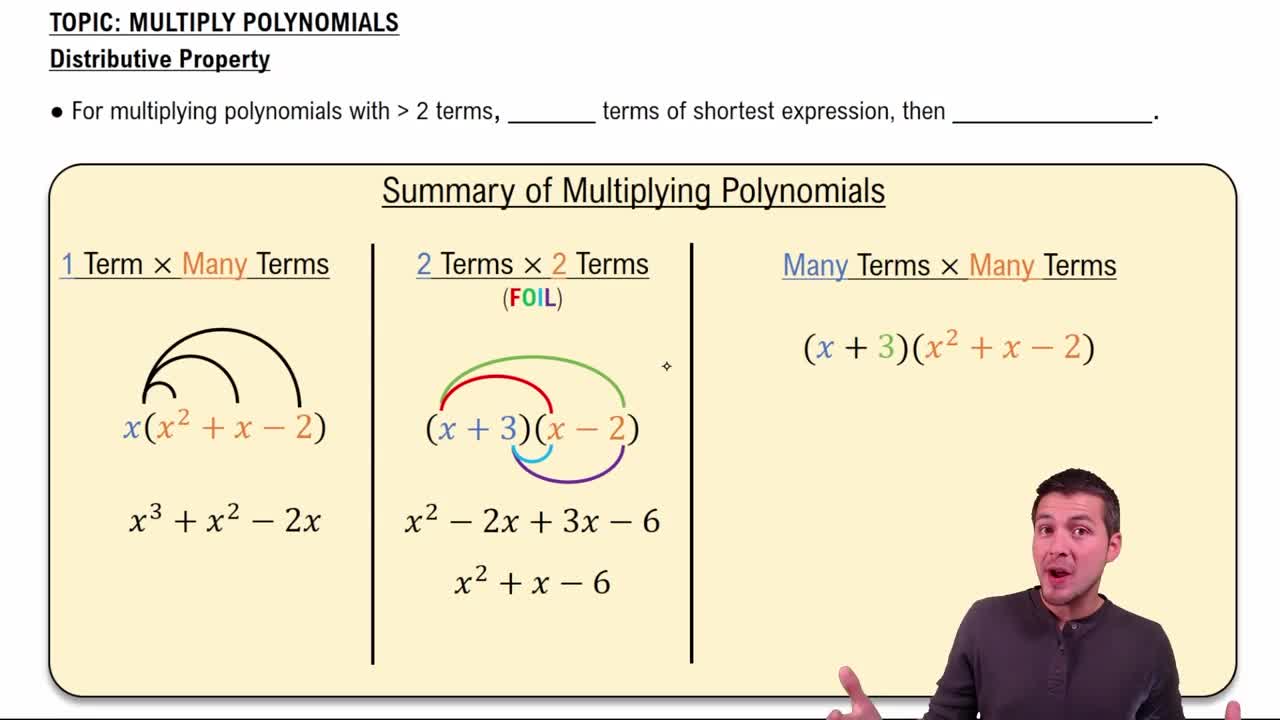Textbook Question
Evaluate the given binomial coefficient.
518
views
 Verified step by step guidance
Verified step by step guidance Verified video answer for a similar problem:
Verified video answer for a similar problem:



 4:4m
4:4mMaster Fundamental Counting Principle with a bite sized video explanation from Patrick
Start learning